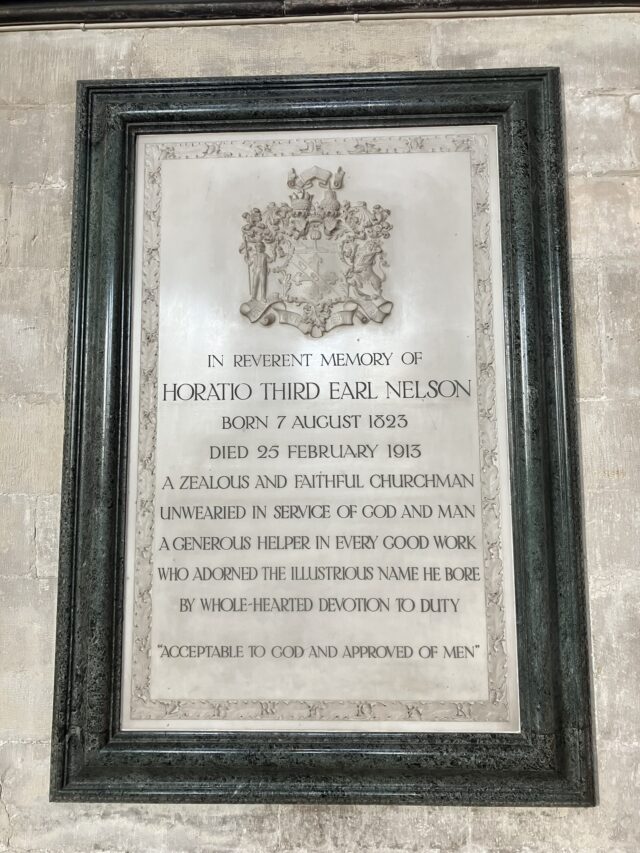
This memorial to Horatio the third Earl Nelson, grandson of his illustrious namesake, is typical of its period in many ways. “Good works” start to be commended in the late-nineteenth century; so far I have found two examples apart from this, from 1877 and 1879. Notice also the Earl’s “unwearied … service of God and man” and his “whole-hearted devotion to duty”. This arduous and self-abnegating ideal is typically late-imperial. “Duty” – in the singular, and unqualified – appears seven times between 1857 and 1913, five times in connection with death in the course of military or public service. Clearly, the word had something of a sacrificial flavour.
If we go back to the century running from 1750 – 1850, we find many mention of “duties”, but far fewer of “duty”. And these duties tend to be attached to some concrete social role – father, mother, husband, wife, vicar, etc. “Having discharged the more important duties of husband, father, brother, friend, with the greatest integrity, he died” runs the epitaph of James Nares, obit. 1783. Similarly, Robert and Susanna Welland, who died in 1841 and 1811, are remembered with gratitude by their children for “the tender and assiduous care with which they fulfilled towards them all the duties of a parent”. Epitaphs such as this reflect the old Anglican principle of “my station and its duties”, and behind it, the Ciceronian notion of the officii – the forms of conduct proper to a particular situation. It was only later in the nineteenth century that the term “duty” started to function as a synonym for moral obligation in general, and to carry connotations of strenuousness and sacrifice.
